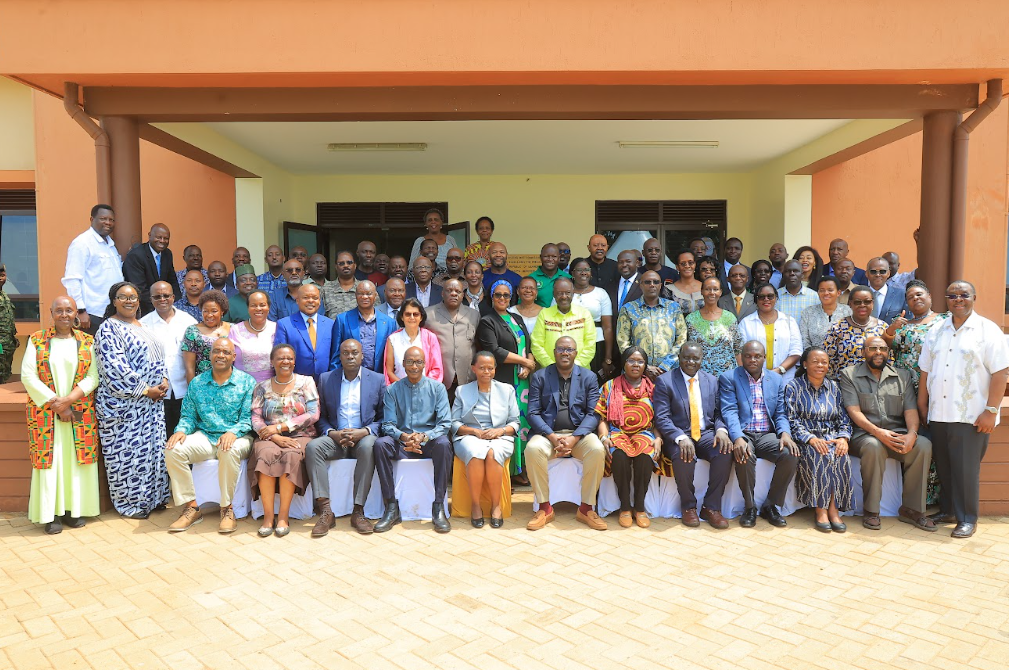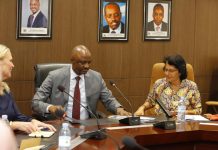The Ministry of Foreign Affairs has reaffirmed its commitment to strengthening the role of diplomacy in advancing national development as Uganda’s Heads of Mission gathered on the third day of the Annual Ambassadors’ Conference at Gulu University. Convened under the theme “Strengthening the Foreign Service’s Contribution to National Development”, the meeting has provided a platform for reviewing the performance of Missions abroad and aligning them with the country’s broader economic and political agenda.
In his opening address, Mr. Bagiire Vincent Waiswa, the Permanent Secretary of the Ministry of Foreign Affairs, commended Uganda’s envoys for their resilience and dedication in representing the country under increasingly complex global conditions. He emphasized the Ministry’s ongoing transformation, describing the conference as a moment of renewal in both spirit and method. Noting recent additional funding provided to Missions by the Ministry of Finance, Mr. Bagiire stressed that effective teamwork, strong leadership, and clear delegation are critical if Uganda’s diplomatic service is to translate national priorities into measurable outcomes.
The Head of Public Service and Secretary to Cabinet, Ms. Lucy Nakyobe, who attended, reinforced this call for results. While welcoming the Permanent Secretary’s proposals to enhance resourcing of Missions, she stressed that future support must be tied to clear and tangible outcomes. Recalling H.E. the President’s guidance, she urged the Envoys to reflect on substantive contributions, embrace accountability, and rise to the expectations of leadership. Her remarks delivered with characteristic humor—nonetheless carried a serious message of urgency for improved performance and visible impact.

Ms. Nakyobe also presided over the launch of three key policy instruments: the Ministry of Foreign Affairs Strategic Plan IV, the Client Charter, and the Service Delivery Standards. She described these as essential tools to ensure that Uganda’s diplomacy delivers efficiently, upholds professionalism, and enhances accountability both to government and to citizens. She placed particular emphasis on consular services, urging ambassadors to remain accessible, responsive, and committed to protecting Ugandan nationals abroad.
The conference also highlighted the intersection between diplomacy and security, representing the Chief of Defence Forces, Gen. Muhoozi Kainerugaba, Inspector General Emeritus of Police, Rtd Gen. Kale Kayihura delivered reflections on the nexus between the Military and Diplomacy. Drawing on personal experience from past regional tensions, he underscored how diplomacy and defence are mutually reinforcing in safeguarding peace and stability. He emphasized that modern diplomats must appreciate the security environments in which they operate, just as the military must recognize the value of diplomacy in preventing and resolving conflict.
Discussions throughout the day reaffirmed economic diplomacy as a cornerstone of Uganda’s foreign policy. Envoys were reminded of their responsibility to attract foreign investment, open new markets for Ugandan exports, and facilitate the transfer of technology and skills. Strategic partnerships in science, innovation, and regional integration were identified as essential to Uganda’s long-term growth.
Closing the day’s deliberations, the Permanent Secretary reiterated that diplomacy is no longer defined solely by political representation, but by its ability to deliver concrete benefits investments mobilized, jobs created, and Uganda’s image strengthened globally. As the conference moves toward its conclusion, the message from Gulu is clear: Uganda’s foreign service must be measured not only by its presence but by its performance.























